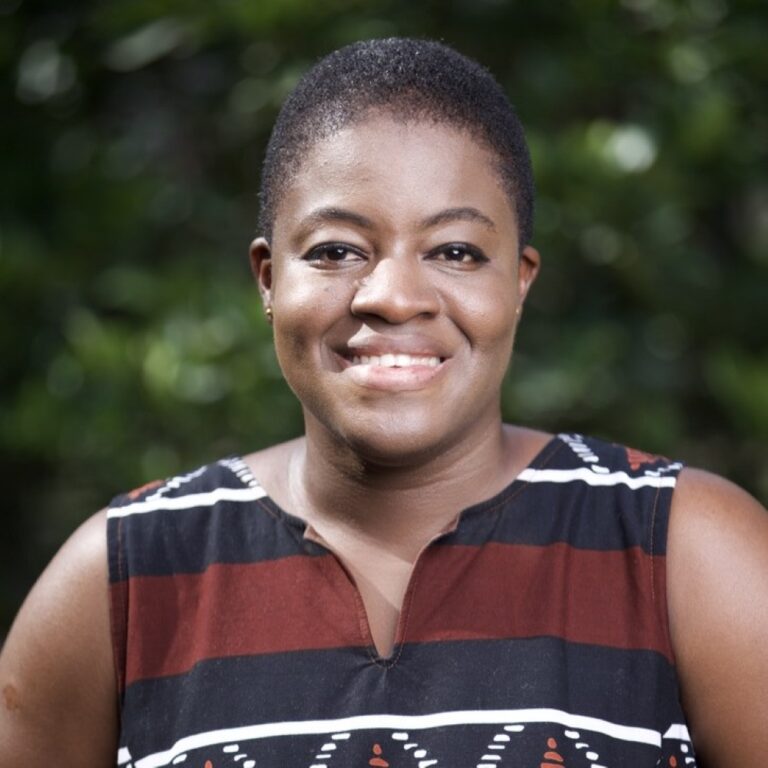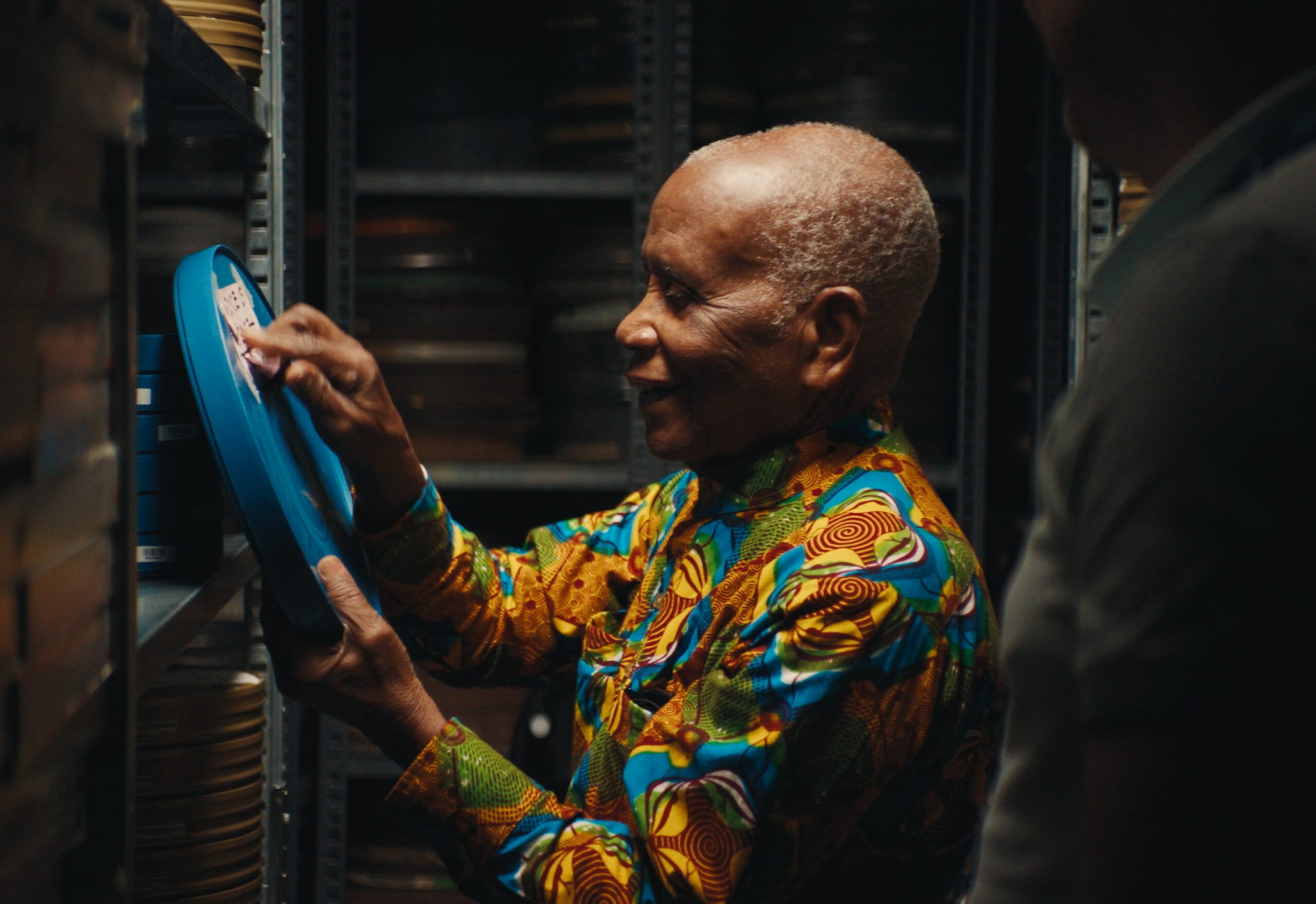THE EYES OF GHANA premiered at the Hawai‘i International Film Festival presented by Halekulani.
THE EYES OF GHANA takes viewers on a visually striking journey through the rich and fascinating life of Reverend Chris Hesse, a Ghanaian filmmaker who served as the personal cameraman to Ghana’s first prime minister, Kwame Nkrumah. The film weaves several stories together as Reverend Hesse and his protégé, Anita Afonu, struggle to digitize his films before he loses his vision completely. At the same time, the two work with Mr. Edmund Addo to restore the Rex Theater in Accra so they can hold a screening of Hesse’s work. Throughout the film, Reverend Hesse chronicles the fraught legacy of Kwame Nkrumah, one of Ghana’s most inspiring yet controversial political figures.
Kwame Nkrumah served as Ghana’s first prime minister and president during the 1950s and ’60s. As his cameraman, Hesse had a front-row seat to some of the most pivotal moments in African history. He captured meetings with the Queen of England, John F. Kennedy, Richard Nixon, and many other high-profile figures. In 1966, Nkrumah was deposed, and nearly all the films documenting his time in power were destroyed. With immense foresight, Hesse stored over 1,300 reels from his time with Nkrumah in a library in London, effectively preserving an invaluable chapter of Ghanaian history. Though only 15 minutes of Hesse’s digitized work appear on screen, Anita Afonu hopes that the success of this film will help them garner the support they need to preserve his entire archive.

Not long after their world premiere at TIFF, I had the privilege of speaking with Anita Afonu. What she shared about her journey working on THE EYES OF GHANA gave me great hope for the future of African cinema. Listening to Afonu speak about the importance of historical preservation, I was reminded of the Hawaiian proverb “I ka wā mamua, ka wā mahope,” which translates to “The future lies in the past.” Anita revealed that they have a similar saying in Ghana: “Sankofa,” which means “Go back and fetch.” Both phrases stress the importance of looking toward your past to inform how you will move forward in the future. THE EYES OF GHANA perfectly embodies this sentiment and, in doing so, offers a beautiful example of what we can accomplish when we seek out the wisdom and guidance of our elders.
The cinematography in THE EYES OF GHANA is a vivid reflection of the tenderness and warmth that Hesse and Afonu have fostered through their friendship. Through lighting, framing, and overall composition, each scene demonstrates a remarkable level of intentionality and care. It’s as though the camera looks at every person on screen with the same consideration and affection that Hesse and Afonu have for one another. This attentive and loving gaze is rendered perfectly in the montage of Ghanaian film students toward the end of the movie. Each student is framed in soft, warm key lighting that illuminates their face with a gentle glow while creating a striking contrast with the dark blue hues in the background. This composition enhances the depth of each frame and visually underscores the hope and optimism reflected in each student’s smile. The use of color throughout THE EYES OF GHANA is nothing short of spectacular. From the opening shot of Reverend Hesse dreaming to the closing shot of him on the beach, the cinematography left me completely awestruck.
It is impossible to talk about THE EYES OF GHANA without giving ample praise to the exquisite sound design and score. The music in this film complements the story better than in any other documentary I have seen. Kris Bowers’ brilliant compositions ebb and flow with the intensity of each moment, seamlessly guiding viewers from one scene to the next. The use of silence is scarce but poignant—a fine example being the moment Mr. Addo enters the restored projection room at the Rex. The absence of music accentuates his loneliness while evoking a tone of reverence. This scene swells into a powerful moment as the strings slowly build in the background, emphasizing the pride on Mr. Addo’s face as he gazes through the projection window at the revived outdoor theater.
Anita Afonu described the editing process for THE EYES OF GHANA as deeply collaborative, drawing on the diverse perspectives of their creative team to help shape a more concise and comprehensible story. When it came time to review their material and decide on the film’s central message, they landed on something a little unconventional. Rather than focusing solely on Nkrumah’s political legacy or Hesse’s race against time, they chose to craft a love letter to film itself—a goal they accomplished flawlessly.
The ending of THE EYES OF GHANA is the most beautiful tribute to cinema that I have ever seen. Blending scenes of the past and present, the film serves as a refreshing reminder of what we can accomplish when we reclaim control over our own stories and seek guidance from those who came before us. If you remember nothing else from THE EYES OF GHANA, remember this: When you’re feeling lost or in need of direction, Sankofa.
The HIFF ONLINE CREATIVES & CRITICS IMMERSIVE (HOCCI) program supports sustainable film criticism in Hawai’i through mentorship and paid career opportunities for Hawai’i-based AANHPI critics. The mission of HOCCI is to broaden diversity in film criticism across the Pacific and use influencer branding strategies to spark career opportunities. The 2025 HOCCI is supported by Critical Minded, a grant-making and learning initiative that supports cultural critics of color in the United States.

Lena Mealaʻaloha Stevens-Ng is an Afro-Indigenous, Native Hawaiian born and raised on Oʻahu. After graduating from Vassar College with a double-major in media studies and film, she began working full-time as a marketing coordinator and has traveled the continent expanding her professional skills. As an aspiring filmmaker with an affinity for experimental documentaries, she recently began working as a production assistant in hopes of one day creating short films that explore the vast perspectives and nuances of Indigenous life.



